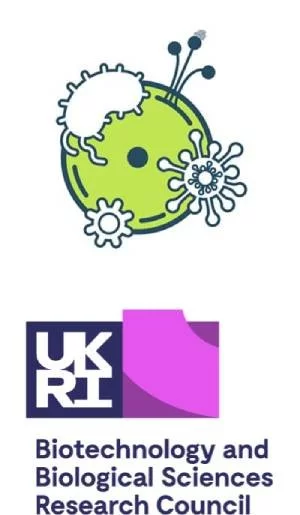Wessex One Health BBSRC scholarship: Paralysis in the hive: epidemiology and persistence of a neglected virus pathogen of honeybees (2026)
What you get
PhD studentships cover four years of UK or International PhD fees and a tax free maintenance allowance (currently £20,780 in 2024-5) plus some research costs.
Type of award
PhD scholarship

PhD project
Paralysis in the hive: epidemiology and persistence of a neglected virus pathogen of honeybees
Theme(s): Microbial Evolution and Drug Resistance; Understanding disease spread
Lead partner: University of Sussex
Supervisor: Supervisor: Prof William Hughes, william.hughes@sussex.ac.uk
Joint partner: APHA
Supervisor: Arran Folly, arran.folly@apha.gov.uk
Collaborative partner: The Pirbright Institute
Project Summary
Honeybees and other pollinators are of tremendous economic importance, providing essential pollination services to agriculture, but they are increasingly threatened by a diversity of pathogens and other stressors. There is growing recognition of the need for a better understanding of the complex interactions between the host, pathogens and stressors for the sustainable provision of pollination services.
Chronic Bee Paralysis Virus (CBPV) is a relatively neglected disease that is both an important problem for UK bees and an intriguing pathogen from a virology perspective, but it is still poorly understood, which greatly hinders the development of appropriate management strategies.
This exciting project will address this knowledge gap by investigating the host-pathogen dynamics of CBPV in honeybees at within-host, colony and population levels in a cross-agency collaboration between the University of Sussex (Prof William Hughes), APHA (Dr Arran Folly), National Bee Unit (Nigel Semmence) and Pirbright Institute (Dr Naomi Forrester-Soto).
The work will involve quantifying virus replication and mutation rates, controlled virus inoculation experiments to examine host-pathogen transmission dynamics, and integrating field sampling and syndromic surveillance into spatial and phylogenetic analyses to investigate virus patterns across the UK. The results will both advance our fundamental understanding of host-virus dynamics and be of applied impact in informing the management of an important, neglected disease.
You will receive an exciting diversity of interdisciplinary training, including two professional internships at APHA and the Pirbright Institute, encompassing cutting-edge virology, laboratory experiments, and advanced statistical analyses, as well as first-hand experience of applied stakeholder knowledge exchange with the National Bee Unit. The project will provide you with an outstanding range of skills and experience to support a subsequent career across a broad diversity of fields in academia and industry, health and veterinary sciences, agriculture and conservation
Eligibility
Who we are looking for
You will have the ambition, motivation and scientific curiosity to research new approaches to combatting infectious diseases in the themes of:
- Detection, prevention and intervention
- Microbial evolution and drug resistance
- Understanding disease spread
- Infection and cellular biology.
You will have or expect to have an MSc, and/or a first or upper second honours degree in a relevant subject. We welcome applications from graduates of all universities, and from candidates already in work, or returning after a career break.
Note: Lab experience is desirable but not essential as all successful applicants will be trained in basic lab skills where applicable.
The Scholarships are open to both UK and International applicants. However international places are limited as 70% of each cohort must be Home Students. In addition, some of the partner laboratories have nationality or residency requirements due to security clearance checks on their researchers. Please contact the supervisors for details of any further requirements for this project.
Number of scholarships available
One for this project but 17 PhD studentships are available for October 2026 across the programme.
Deadline
23 January 2026 23:59How to apply
Please apply by submitting an application form for a Wessex One Health scholarship and completing our EDI survey
You will find this project listed in Section 14 of the application form.
If you are invited for interview, you should contact the supervisors ahead of the interview, but you are welcome to contact them before applying to find out more about the project.
Contact us
For Sussex-specific enquiries contact pgr-scholarships@sussex.ac.uk
For information on this project, contact the Sussex supervisor: Supervisor: Prof William Hughes william.hughes@sussex.ac.uk
For further information on the programme or application process, email WOH@surrey.ac.uk.
You might also be interested in
You can find out more about the Wessex One Health Programme here,
Timetable
The timetable is as follows:
Submission deadline: Midnight Friday 23 January 2026
Shortlisting: by 13 February 2026
Online interviews: Online, week beginning 3 March 2026
Availability
At level(s):
PG (research)
Application deadline:
23 January 2026 23:59 (GMT)
the deadline has now expired
Countries
The award is available to people from these specific countries: